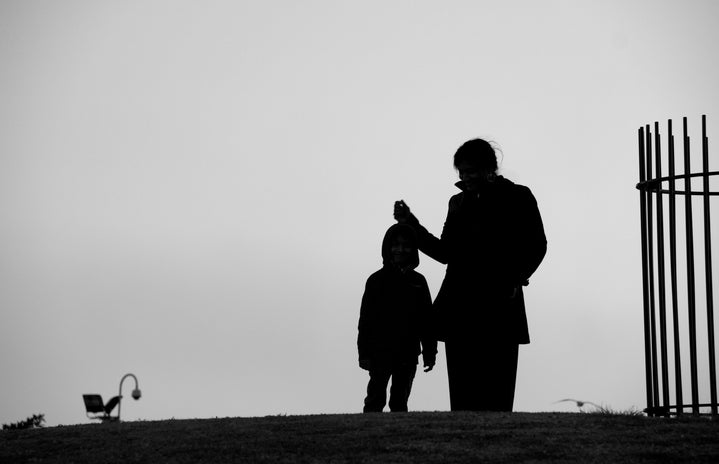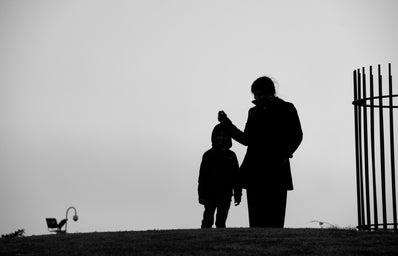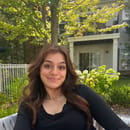When I was a little girl, I never watched movies or TV like some of my friends did. Instead, I could be found in odd corners of my childhood home, clutching a book and a warm blanket. Reading allowed me to create a world that was my own doing, and I never relied on a direct visual to manipulate my ideas in any way. My visual, instead, became my mother. I would sit on her bedroom floor and watch her get ready for evening meetings, occasional dinner parties, and other appointments, silently making her the main female lead in my own narrative.
My mother is a first generation Indian immigrant, and so her lifestyle, values, and method of raising me and my sister have proven to be quite distinct from the typical “American home” we like to attribute as the social norm of modern society. I was taught to call my mother, “Aie,” which translates to the casual title, “mom” in the western part of India, where we originate from. Aie has always shown me a different example of “woman” than what society taught me; she consistently worked an eight to five, she cooked authentic warm Indian food every single night for dinner for me and my family, she never wore pink sweaters or fancy jewelry to work, and she very much had opinions and a voice to share them with. Aie was not typical; she was importantly distinct. Aie set the example in front of my nascent eyes: women are hard workers, women are more than capable of having a career, and most importantly, women are independent- they thrive with or without the invisible tethers that tie them to their home and families. Since I was eight years old, I can remember my mother would tell me and sister, “you have to be financially independent, and you can never rely on a man.” This never came from a place of negativity towards my father; he was quite the feminist and supporting actor in this journey, but rather as a precaution from the ways in which she had experienced her own successes, and observed the lack thereof in those who didn’t prepare themselves for reality. Along with this, something Aie always told me, on the way to swim class, on the way to fifth grade graduation, and even during my dental cleanings was, “Tanvi, you are your biggest advocate-speak up.” From her years spent being my mother, she noticed that I sometimes tend to keep all my thoughts locked into my brain, and suffer poor outcomes because of it, whether that is in school, friendships, or in regular doings of the day. Her saying this to me only pointed out that I wasn’t invisible-that I did, in fact, limit my ability to take up space and speak up. Hearing her continuously say that encouraged me to find my voice when I was afraid to use it. Aie obviously wanted to see me succeed, but she wanted me to find my own independence in succeeding, because to her, real opportunities that further my gain should be taken up with passion and confidence, and require me to consistently consider myself a worthy contributor, even when I feel least like it. To this day, at almost 21 years old, I still hear her saying it in my ears, when I draft emails to professors, when I find job opportunities, and when I need further communication from peers or teams functioning above me.
However, Aie is not to be confused as someone who is solely a promoter of productivity and success; she also taught me softer lessons that allowed me to learn more about her own values and ideas as a mother and woman of her background. Since I was little, I can recall my mother offering to help people around her, within my community, across the families of my friends and classmates, and even to complete strangers. Yet, when I think about it, I initially always associated natural, or intuitive kindness with my father, because he was always really outwardly gentle with me and my sister growing up. I only recently, in the past five years or so, realized that the source of such softness was actually my Aie. Aie would show us examples of her helpfulness when she would donate her time by volunteering at our temple to make meals for our neighbors on random Tuesdays, or when she would open her doors for many friends or extended family that needed a place to stay. She remembered to look out for the people around her even when she was depleted of energy and resources. I find that to be highly admirable, especially today, when physical human interactions are exchanged for text messages and liked photos, my mother will still take effort to make a person feel welcomed and guided through her traditional ways. This exemplifies to me the significance of lending a hand to those around us; it can be equally fulfilling to give, when we are assured with the knowledge that someone else is being taken care of, and has their human needs met.
Another part of my mother that I want to celebrate is authenticity. Aie had never made herself small for anyone, at least not in front of me. My mother has been very open, in her knowledge of the world, and sharing it with me and my sister from a young age. I can remember when I was entering a new elementary school, she told me and my sister on the car ride to our first day that the most important things we do should include, “being yourselves.” This sounds simple, but it is true; the older I get, the more I understand that authenticity is our only marker of individuality, at least socially speaking. When we present ourselves as our truest most authentic character, with unapologetic personality, and respectful perspective, we attract friendships and connections that are true to us, overall, filling our sphere of influences in alignment with our goals and values. This lesson took me the longest to learn! I think having a different background than my peers, and having a cultural tie to my family, made it hard for me to “pick” a personality in public. I wanted to find a way to “fit in,” even if that meant compromising one part of myself for another. It literally took me until I got to college to absorb why my mother always says this one statement: why should I sacrifice who I am to fit into a norm, when I can be more content being myself? It is such a simple thing, but this message can carry me through any stage of my life.
Through it all, my mother’s actions spoke to me more than her words. Hence, day after day, I have watched Aie become the best latent teacher that I could have asked for. I think parenting is the hardest job in the entire world, yet my Aie has managed to make it fruitful for her and me. She tells me every year that she learns more and more from being my parent, but I feel that there is a world of knowledge she continues to share with me, and it is all finally starting to make sense to me at 20 years old.


